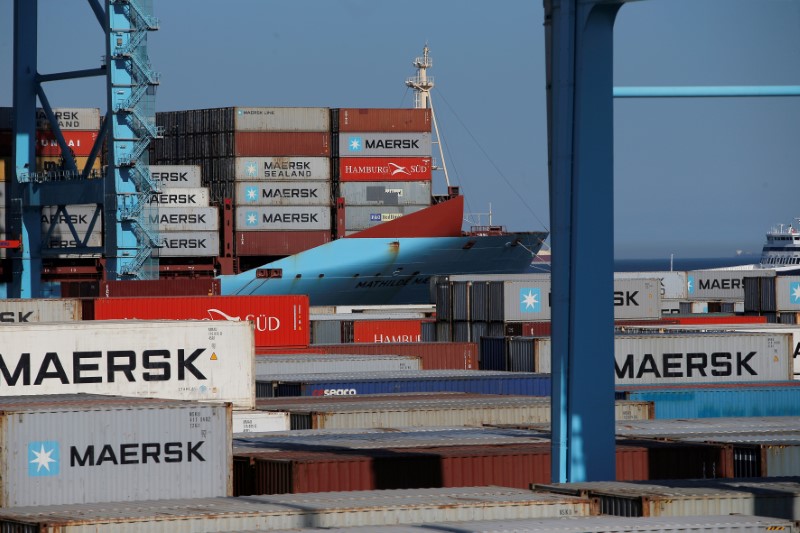By Rahul Karunakar
BENGALURU (Reuters) - Euro zone economic growth likely put in a decent performance in the second quarter with private businesses growing faster than expected in June, but trade worries knocked manufacturing growth to the weakest in 18 months, a private survey showed.
News of faster overall expansion this month, including in two of its biggest economies Germany and France, along with rising price pressures will likely be welcomed by policymakers at the European Central Bank.
Just last week the ECB signaled that its crisis-era bond buying program will end this year and that interest rates will rise in the second half of 2019.
IHS Markit's Euro Zone Composite Flash Purchasing Managers' Index (PMI), seen as a good guide to economic growth, climbed in June to 54.8 from 54.1 in the previous month and above 53.9 predicted in a Reuters poll.
The latest PMIs suggest 0.5 percent euro zone growth in the second quarter, IHS Markit said. That is below the 0.6 percent predicted in a Reuters poll taken last month, but above 0.4 percent measured in the first three months of the year.
Analysts said while this was a step in the right direction, there was no reason to declare the recent slowing trend is over. Accordingly, there was not much movement in the euro when the initial data were released.
"The increase in the PMI shows that calendar effects may have overstated the slowdown in May, but it doesn't provide much evidence that the soft patch has ended," noted Bert Colijn, senior economist at ING.
"While not a fantastic result, the release does provide a silver lining to the current streak of disappointing data from the eurozone."
The composite output price index climbed to a four-month high of 53.8 from 53.2. That followed news last week that official euro zone inflation rose to 1.9 percent in May, very close to the ECB's 2 percent target ceiling.
The survey covering the bloc's dominant service industry rose to 55.0 from 53.8 in May, the highest since February, and above all forecasts in a Reuters poll, which predicted a dip to 53.7.
Optimism also increased among services firms and they increased hiring at the fastest pace in over a decade. The employment index climbed to 55.2 from 53.9, the highest since late 2007.
"All in all, today’s data will reassure the ECB that it is right to be winding down its asset purchase program this year," noted Jessica Hinds, European economist at Capital Economics.
But euro zone consumer morale dropped unexpectedly in June, according to separate flash data from the European Commission.
TRADE TENSIONS STARTING TO HURT
Manufacturing growth eased in June, in part on increasing fears of a trade war, with the flash factory PMI down to 55.0, its weakest in 18 months, from 55.5 in May.
The factory output index fell to a 19-month low of 54.3 from 54.8 in May, with the new factory orders index down to a 22-month low of 53.3 from 54.2.
"Manufacturing is looking especially prone to a further slowdown in coming months, with companies citing trade worries and political uncertainty as their biggest concerns. Sentiment about the year ahead in the factory sector has sunk to its lowest since 2015," said Chris Williamson, chief business economist at IHS Markit, in a release.
U.S. President Donald Trump's latest threats on tariffs have exacerbated already elevated tensions over trade, including with the European Union.
Trade barriers now being put up could soon push central banks to cut their growth projections. ECB chief Mario Draghi sounded a note of concern at its annual gathering this week in Sintra, Portugal.

"It's not easy and it's not yet time to see what the consequences on monetary policy of all this can be, but there's no ground to be optimistic on that," Draghi said.